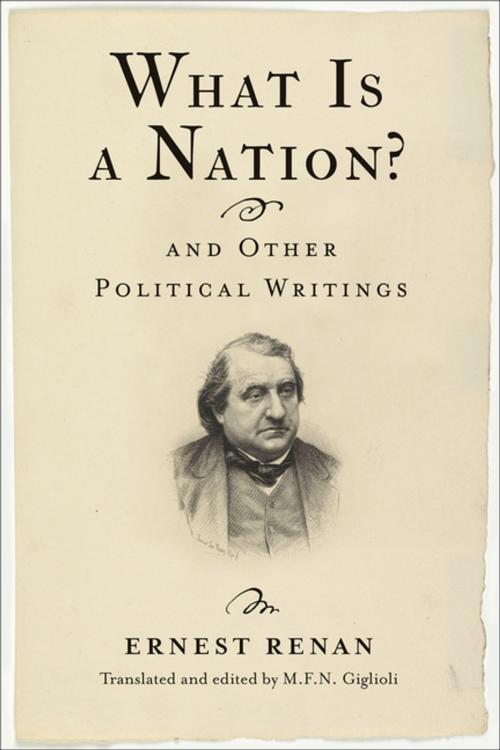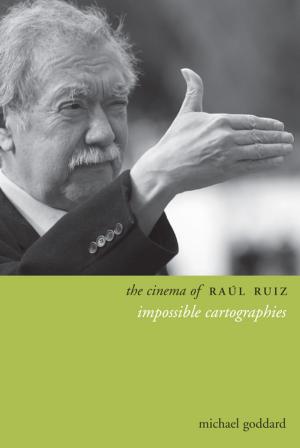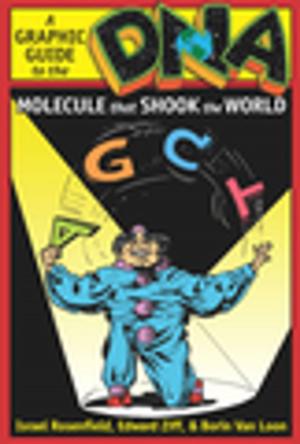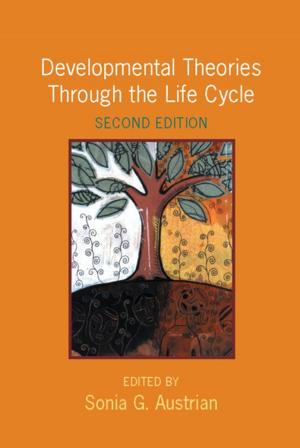What Is a Nation? and Other Political Writings
Nonfiction, Religion & Spirituality, Philosophy, Political, Social & Cultural Studies, Political Science, Politics, History & Theory| Author: | Ernest Renan, M. F. N. Giglioli | ISBN: | 9780231547147 |
| Publisher: | Columbia University Press | Publication: | August 28, 2018 |
| Imprint: | Columbia University Press | Language: | English |
| Author: | Ernest Renan, M. F. N. Giglioli |
| ISBN: | 9780231547147 |
| Publisher: | Columbia University Press |
| Publication: | August 28, 2018 |
| Imprint: | Columbia University Press |
| Language: | English |
Ernest Renan was one of the leading lights of the Parisian intellectual scene in the second half of the nineteenth century. A philologist, historian, and biblical scholar, he was a prominent voice of French liberalism and secularism. Today most familiar in the English-speaking world for his 1882 lecture “What Is a Nation?” and its definition of a nation as an “everyday plebiscite,” Renan was a major figure in the debates surrounding the Franco-Prussian War, the Paris Commune, and the birth of the Third Republic and had a profound influence on thinkers across the political spectrum who grappled with the problem of authority and social organization in the new world wrought by the forces of modernization.
What Is a Nation? and Other Political Writings is the first English-language anthology of Renan’s political thought. Offering a broad selection of Renan’s writings from several periods of his public life, most previously untranslated, it restores Renan to his place as one of France’s major liberal thinkers and gives vital critical context to his views on nationalism. The anthology illuminates the characteristics that distinguished nineteenth-century French liberalism from its English and American counterparts as well as the more controversial parts of Renan’s legacy, including his analysis of colonial expansion, his views on Islam and Judaism, and the role of race in his thought. The volume contains a critical introduction to Renan’s life and work as well as detailed annotations that assist in recovering the wealth and complexity of his thought.
Ernest Renan was one of the leading lights of the Parisian intellectual scene in the second half of the nineteenth century. A philologist, historian, and biblical scholar, he was a prominent voice of French liberalism and secularism. Today most familiar in the English-speaking world for his 1882 lecture “What Is a Nation?” and its definition of a nation as an “everyday plebiscite,” Renan was a major figure in the debates surrounding the Franco-Prussian War, the Paris Commune, and the birth of the Third Republic and had a profound influence on thinkers across the political spectrum who grappled with the problem of authority and social organization in the new world wrought by the forces of modernization.
What Is a Nation? and Other Political Writings is the first English-language anthology of Renan’s political thought. Offering a broad selection of Renan’s writings from several periods of his public life, most previously untranslated, it restores Renan to his place as one of France’s major liberal thinkers and gives vital critical context to his views on nationalism. The anthology illuminates the characteristics that distinguished nineteenth-century French liberalism from its English and American counterparts as well as the more controversial parts of Renan’s legacy, including his analysis of colonial expansion, his views on Islam and Judaism, and the role of race in his thought. The volume contains a critical introduction to Renan’s life and work as well as detailed annotations that assist in recovering the wealth and complexity of his thought.















